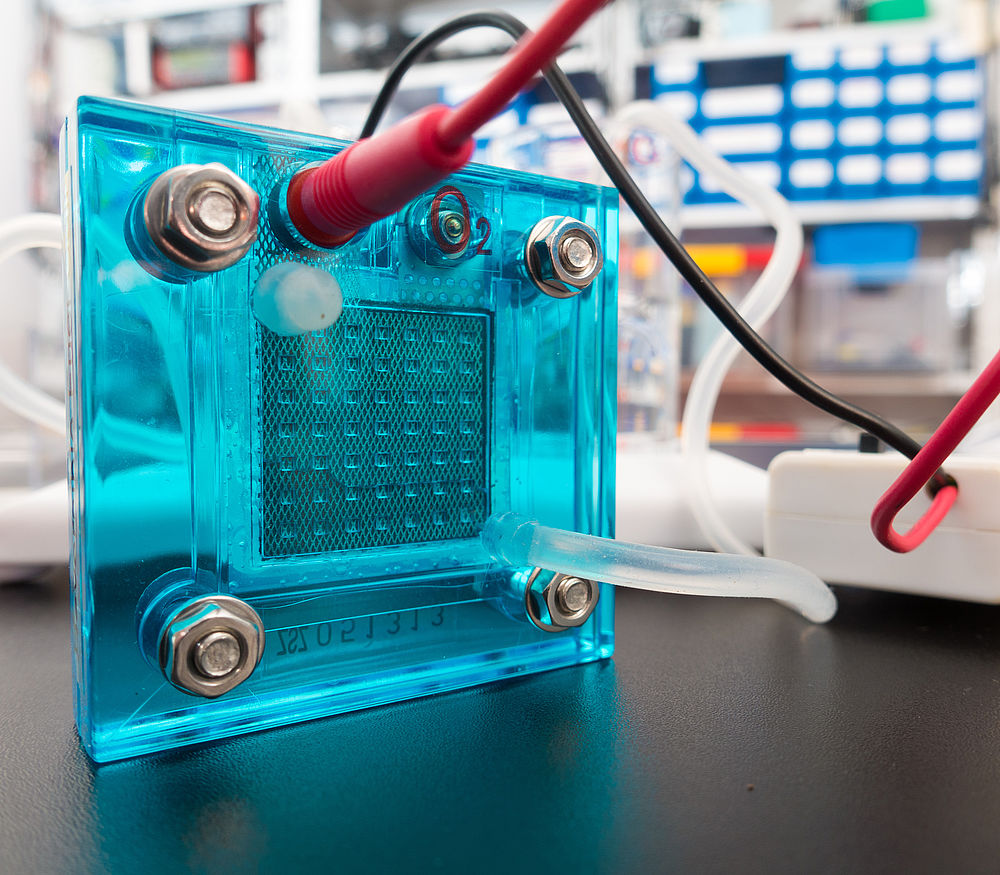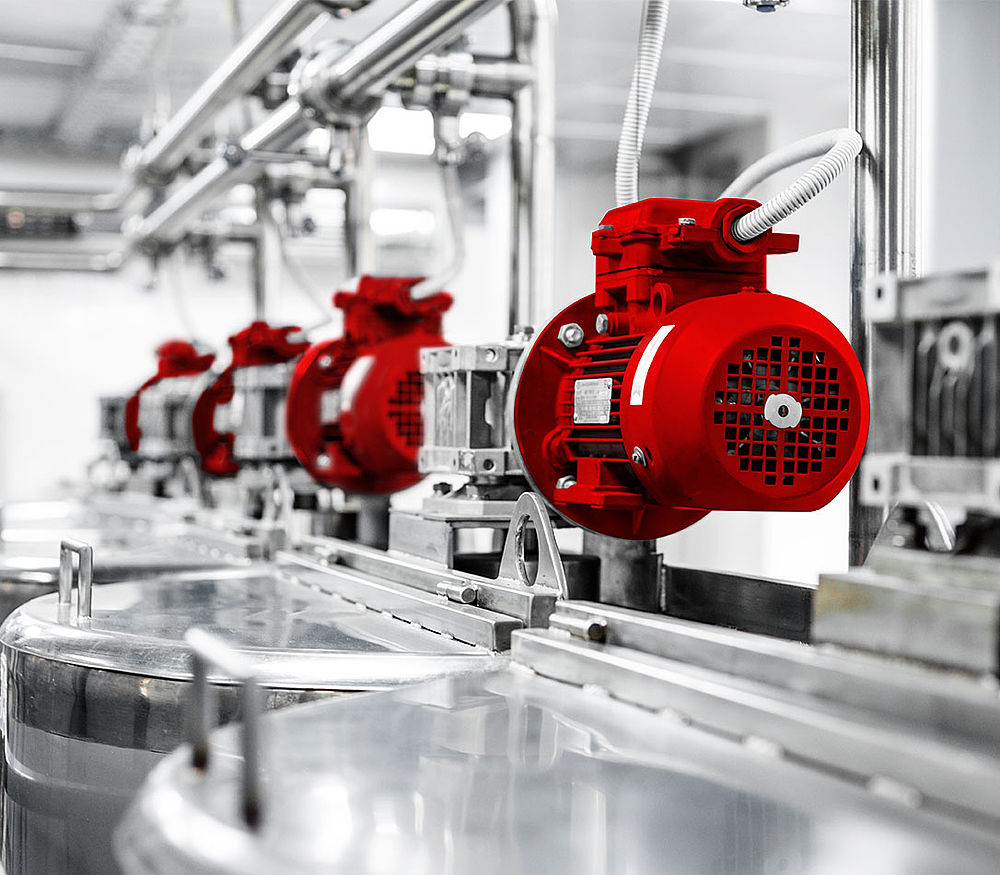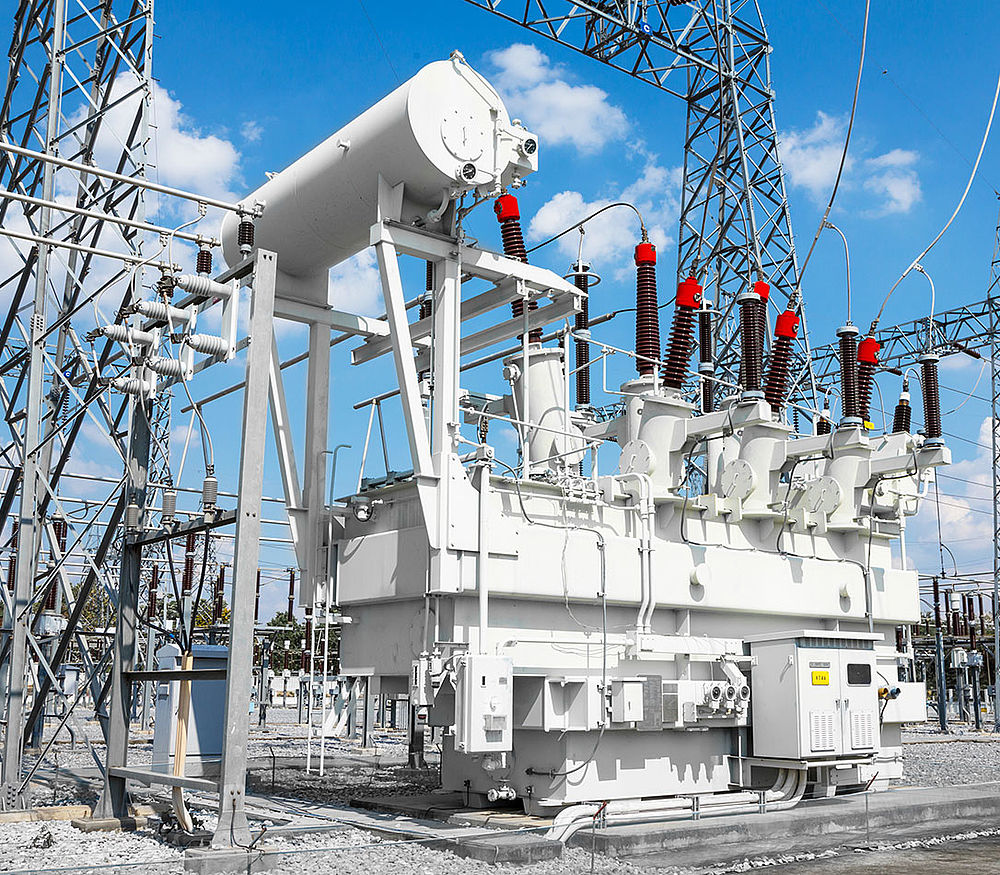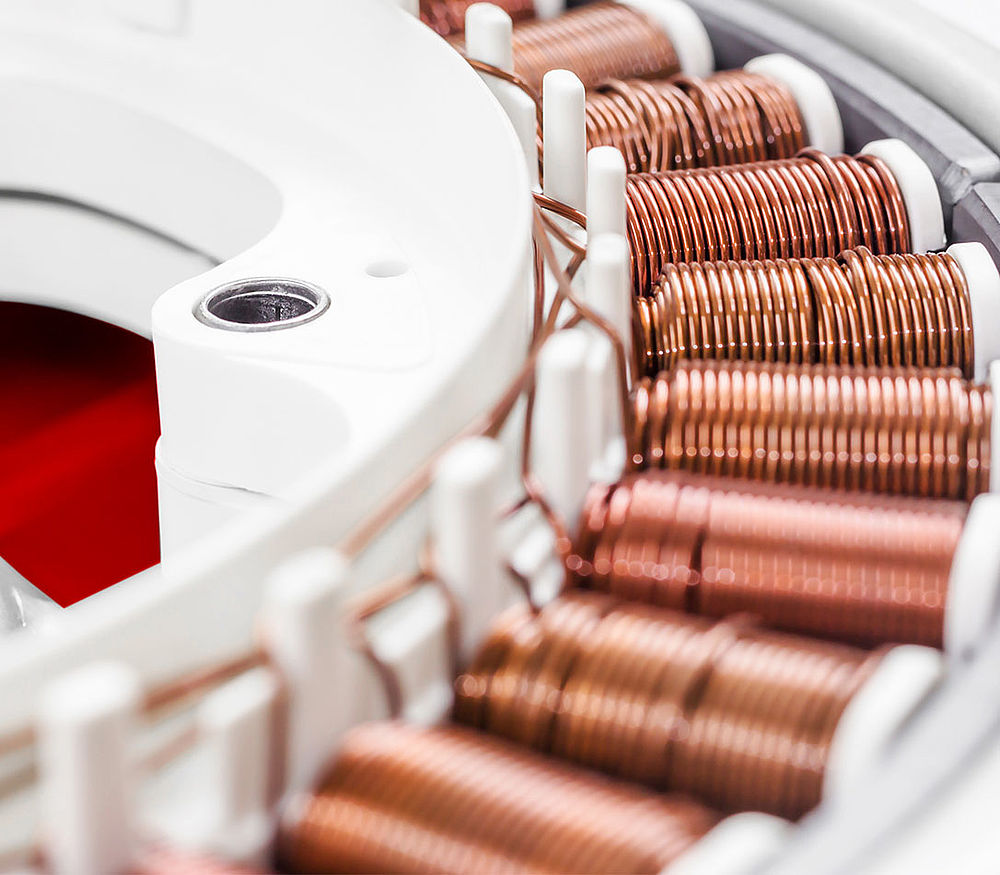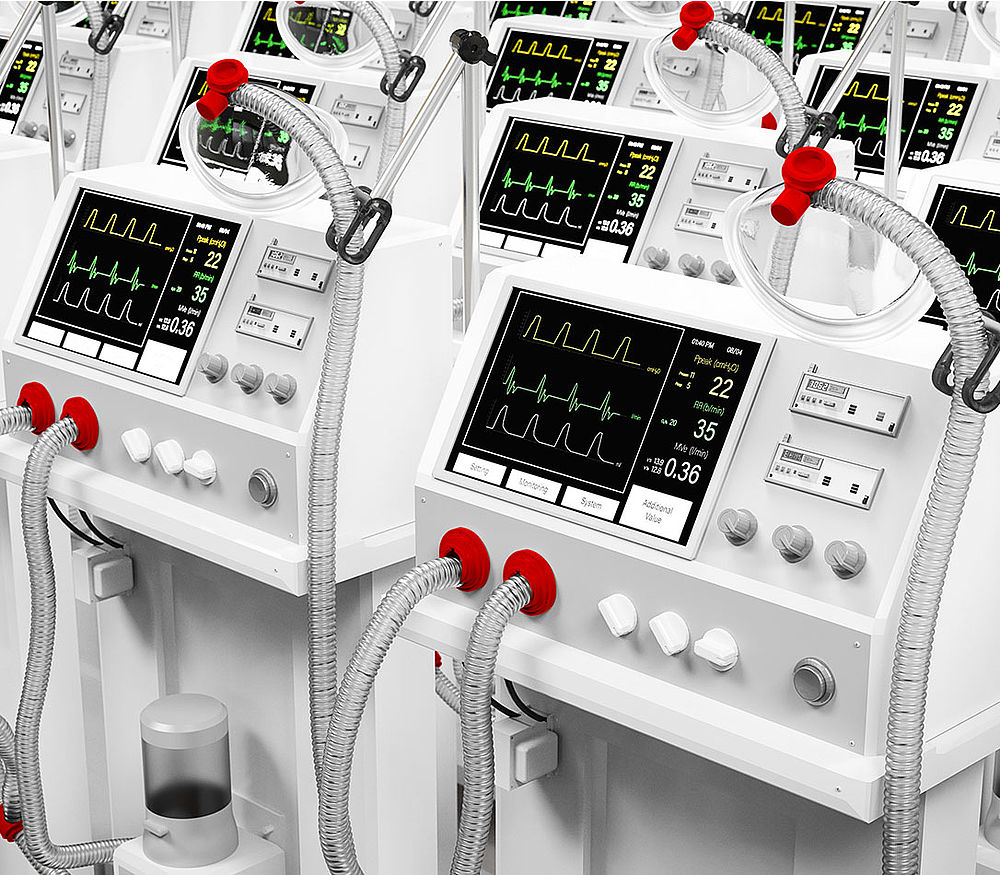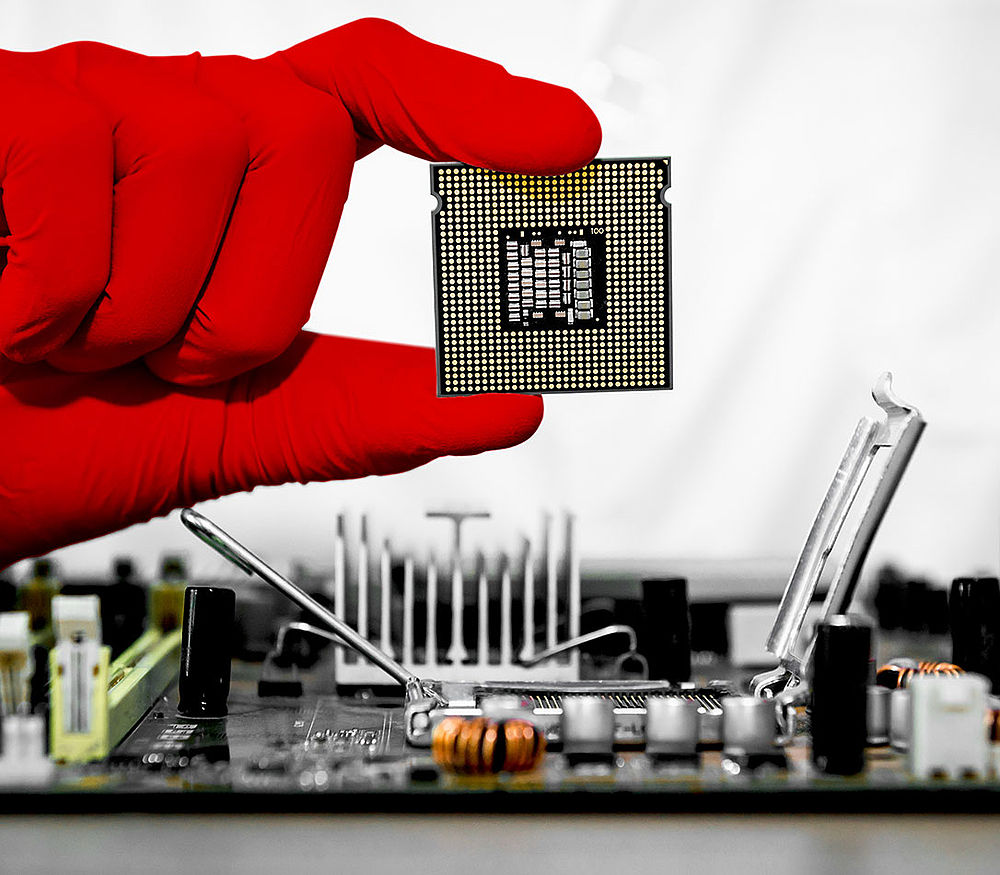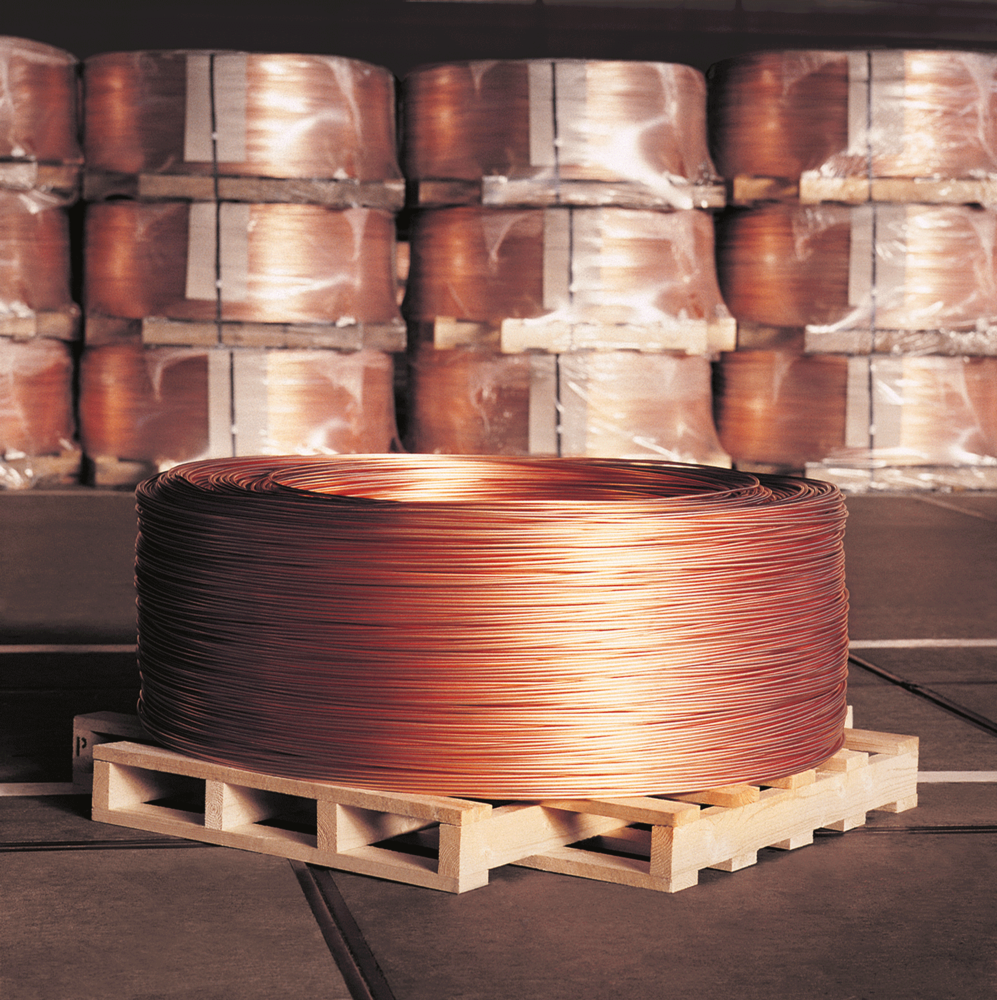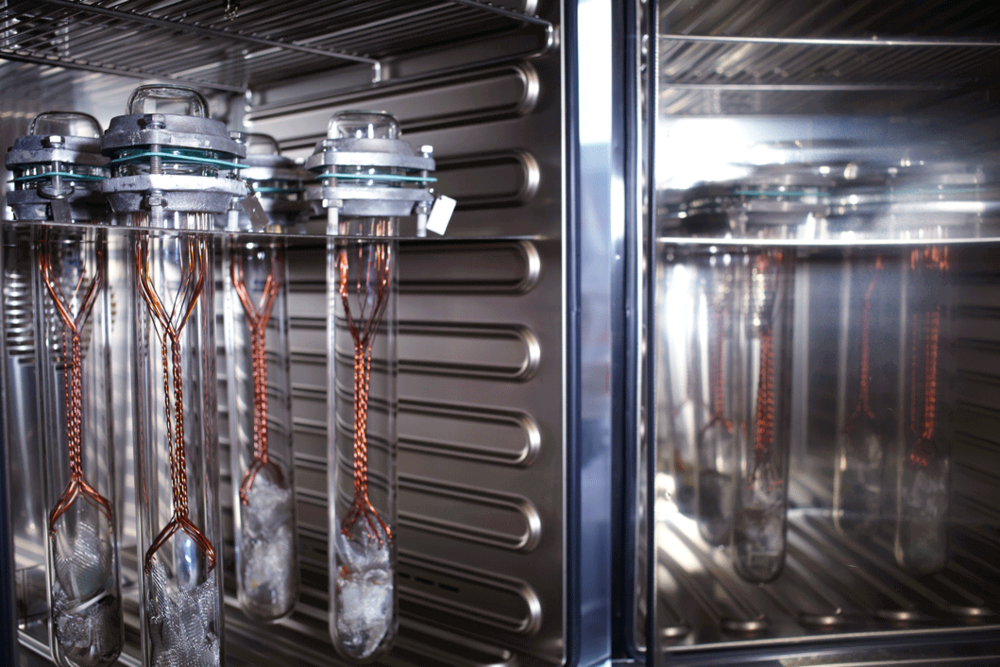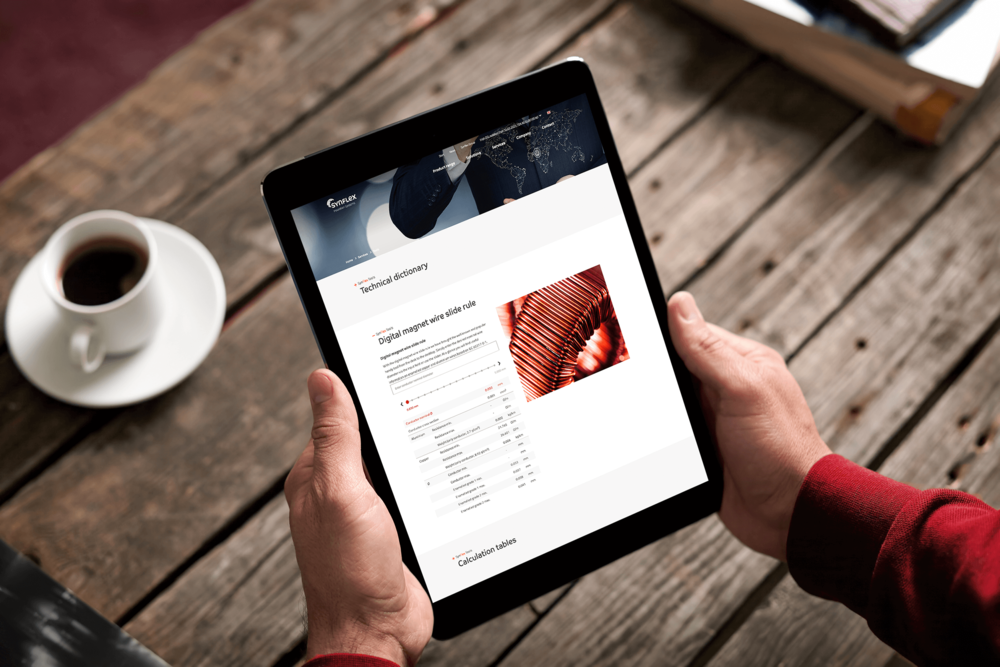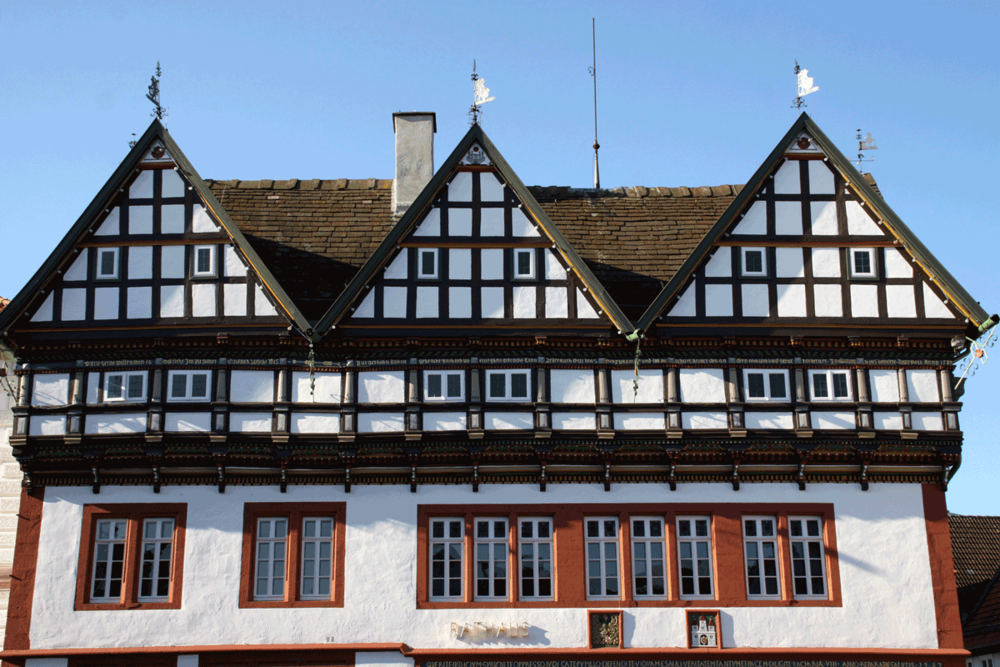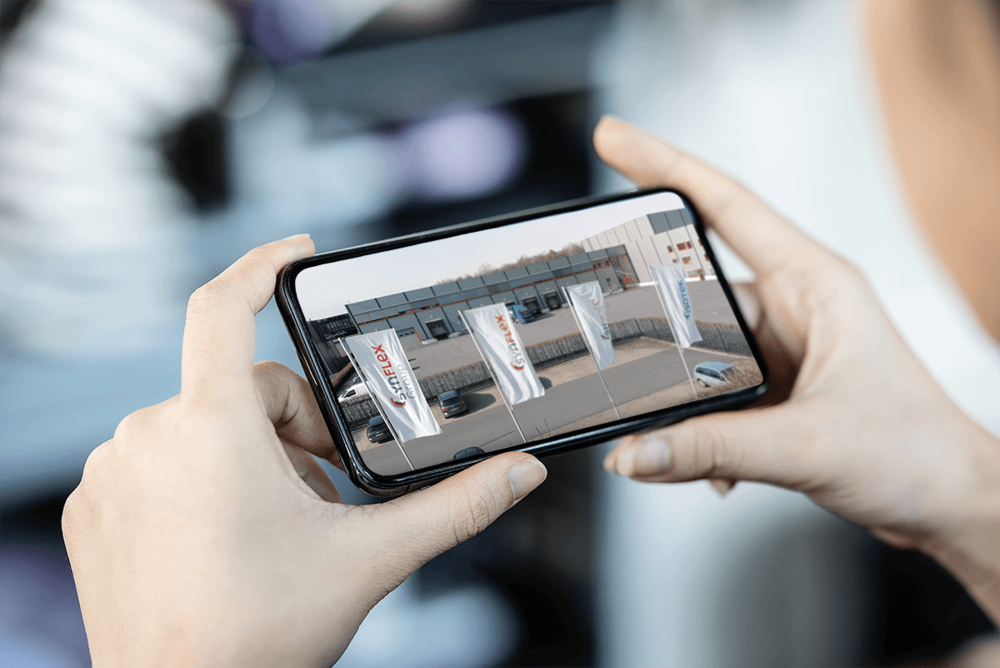SynWire – Winding Wires SynWire type 210, Copper Wire, round, enamelled, self bonding
- selfbonding enamelled round cu.wire, bondable
- insulated with theic-mod. polyesterimide
- plus Amide-Imide overcoat
- plus bonding layer (aromatic polyamide)
- class 200
The SynWire type 210 is a thermal class N enamelled copper wire which is highly heat resistant and can be bonded under heat. The wire combines the excellent resistance and insulating properties of the SynWire type 210 with the special application possibilities of the additional self bonding coat of modified aromatic polyamide.
The SynWire type 210 can be used to produce thermally stimulated windings in an integral and thus space saving, machine suitable, efficient and cost-effective manner. In contrast to impregnation, self bonding can be realised quickly and environmentally friendly. The self bonding windings are characterised by their high thermal and mechanical stability and high resistance to climatic demands and many chemical agents. State-of-the-art processing techniques, process controls and checks ensure the constant high quality of these wires.
Application
Drives for household appliances, pole windings, wire wound coils, power tools
Standards
IEC / DIN EN 60317-38
NEMA MW 102-C
UL approved
Delivery forms
Grade 1b + 2B: 0.180 – 2.00 mm
You have questions according to our winding wires or want to send an inquiry?
Our product manager will be happy to help you.

Dr. Dimitri Jung
Product Manager enamelled copper wire round
+49 5235-968-235 wires@synflex.de

Product Manager enamelled copper wire flat
+49 5235-968-239 wires@synflex.de
Technical data
Typical properties of enamelled round copper wire 0.500 mm, with insulation film grade 1B
| Property | Unit of measure | Set value | Actual value (typ.) |
|---|---|---|---|
| Outer diameter with varnish | mm | min. 0.541 - max. 0.568 | as set value |
| Bare wire diameter | mm | 0.495 - 0.505 | as set value |
| Adhesion and elongation | mandrel diameter 0.500 mm | 1 x d / 10% pre-elongation | |
| Scrape resistance | N | ≥ 3.950 | ≥ 7.500 |
| Pencil hardness of varnish | H | 3H / 5H | |
| Elongation at break | % | ≥ 28 | ≥ 38 |
| Coefficient of friction | µ | / | ≤ 0.140 |
|
(1) Due to the variety of individual applications we cannot make any generally binding commitments regarding the compatibility. We recommend testing compatibility with the materials being used. |
|||
| Property | Unit of measure | Set value | Actual value (typ.) |
|---|---|---|---|
| Temperature index TI | °C | 200 | 210 |
| Cut through temperature (pre-heated block) | °C | 320 | ≥360 |
| Dielectric loss factor | (°C)(tan δ) | / | ≥140/180/240 |
| Heat shock at 220 °C (no cracks in varnish after winding) | mandrel diameter 1.120 mm | 1 x d / 10 % pre-elongation | |
| Bonding temperature | °C | 200 ± 2 | ≥ 180 |
| Re-softening temperature | °C | ≥ 180 | |
|
(1) Due to the variety of individual applications we cannot make any generally binding commitments regarding the compatibility. We recommend testing compatibility with the materials being used. |
|||
| Property | Set value | Actual value (typ.) |
|---|---|---|
| Enamel pencil harness after storage ½ h/60 °C in standard solvent | test methods unsuitalbe | / |
| Enamel pencil harness after storage ½ h/60 °C in alcohol | test methods unsuitable | / |
| Resistance to impregnants (1) | / | no |
| Resistance to refrigerants (1) | / | limited |
| Resistance to dry transformer oils (1) | / | not recommended |
| Resistance to hydraulic oils (1) | / | no |
|
(1) Due to the variety of individual applications we cannot make any generally binding commitments regarding the compatibility. We recommend testing compatibility with the materials being used. |
||
| Property | Unit of measure | Set value | Actual value (typ.) |
|---|---|---|---|
| Dielectric strength RT | kV | ≥ 2.4 (Twist) | ≥ 3 (Cylinder) |
| High voltage discontinuities (testing voltage 750 V) | ≤ 10 on 30 m | ≤ 7 on 100 m | |
| Electrical conductivity of Cu conductor | MS/m | 58 - 59 | ≥ 58.5 |
|
(1) Due to the variety of individual applications we cannot make any generally binding commitments regarding the compatibility. We recommend testing compatibility with the materials being used. |
|||
